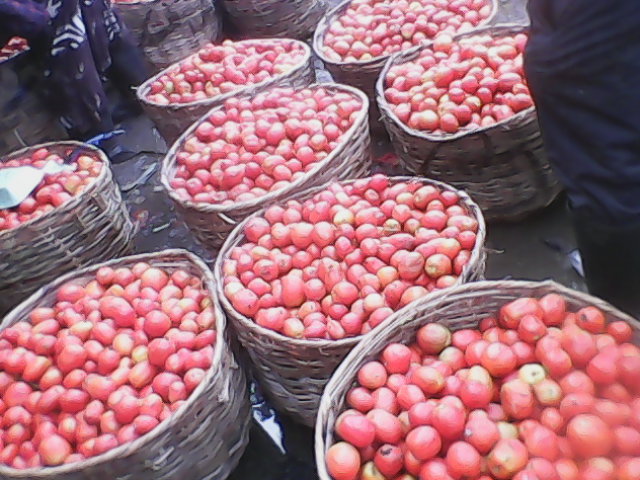The tomato policy introduced by the Federal Government, if effectively implemented, can boost local production and promote Nigeria’s economic growth.

Chief Eric Umeofia, the Chief Executive Officer (CEO) Erisco Foods, said this in an interview with the News Agency of Nigeria (NAN) on Monday, May 21, 2018 in Lagos.
According to him, the industrialisation strategy, which aims at achieving greater global competitiveness in the production of processed and manufactured goods, will be a mirage without effective implementation of government policies.
NAN reports that the government had on March 27, 2017 introduced the tomato policy, and increased tariff on importation of tomato concentrate from five to 50 per cent in its bid to encourage local production.
The policy measure was to accelerate the growth of the manufacturing industry and deepen the diversification of the nation’s economy.
According to the Federal Ministry of Industry, Trade and Investment (FMITI), Nigeria imports an average of 150,000 metric tons of tomato concentrate per annum, valued at $170 million, mostly due to inadequacy in capacity to produce tomato concentrate.
FMITI data reveals that the current demand for fresh tomato fruits is estimated at 2.45 million metric tons per annum (MTPA), while the country produces only about 1.8 million MTPA.
“There are lots of policies by government that are targeted at stimulating growth in the manufacturing sector; but the sector has continued to suffer slow growth and low productivity, due to ineffective implementation of these policies.
“One year after the tomato policy was introduced no tangible progress has been made in implementing the policy.
“The objective of the policy, which is to boost tomato production, improve the value chain, create jobs and attract investment into the sector has been delayed,” Umeofia said.
According to him, the tomato industry is still facing challenges of fake tomato paste that are being smuggled and imported into the country.
He noted that these substandard products portend a risk to the health of unsuspecting consumers, as well as affect the viability of local producers.
Umeofia said that the recent zeal attached to curbing the “Codeine Syrup” menace should be extended to flush out fake and substandard tomato paste from Nigerian market.
He said that fake and substandard tomato paste was much more harmful and dangerous to human health than the “Codeine Syrup”.
“People choose to abuse Codeine consumption, but fake tomato paste consumption is ingested unknowingly by the generality of the people, and it affects both old and young.
“As people consume fake and substandard tomato paste, they would be dying slowly, and contributing to medical bills,” he said.
Umeofia commended the government for returning the National Agency for Food and Drug Administration and Control (NAFDAC) to the nation’s ports.
The industrialist urged the agency to leverage on its presence at the ports to effectively control importation of unwholesome foods and substandard goods.
“A 2015 survey report of NAFDAC revealed that 91.1 per cent of tomato pastes circulated in the country is fake and substandard, we expect the agency’s presence at the ports to stop the entry of these products,” he said.
Umeofia urged the relevant government agencies to collaborate on policing the ports and borders toward reducing smuggling in order to grow the nation’s industrial sector.
By Oluwafunke Ishola
